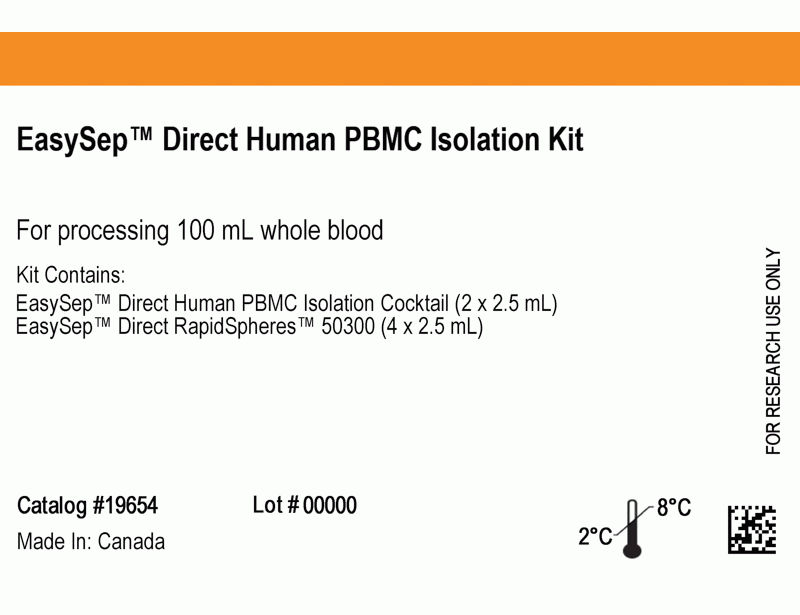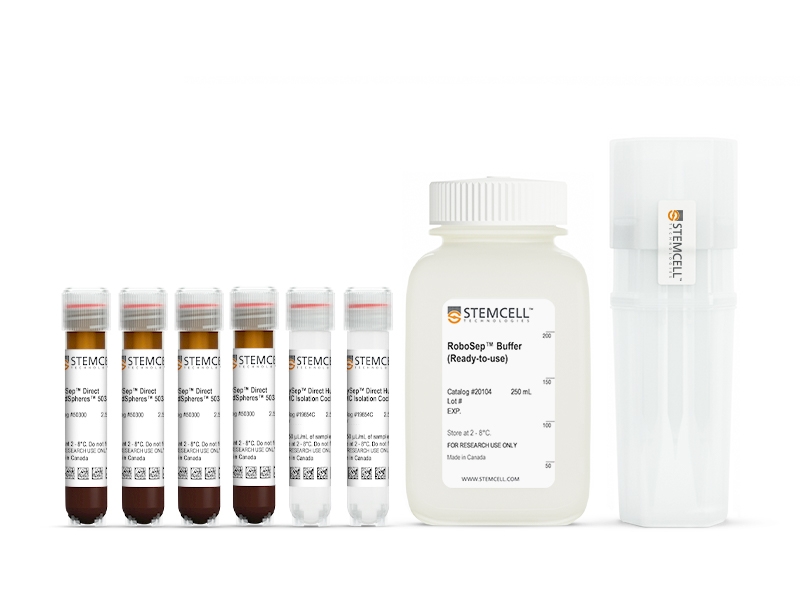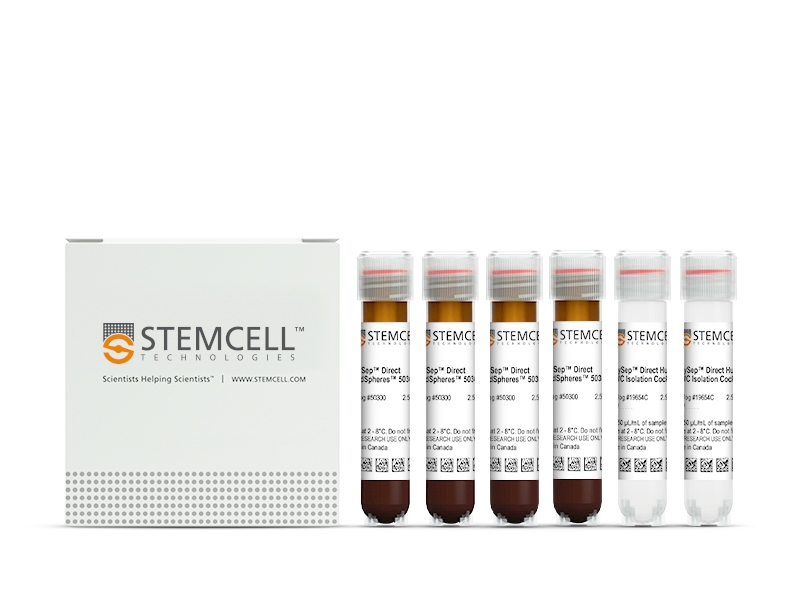EasySep™ Direct Human PBMC Isolation Kit
• Fast, easy-to-use and column-free
• Isolated cells are untouched
- EasySep™ Direct Human PBMC Isolation Kit (Catalog #19654)
- EasySep™ Direct Human PBMC Isolation Cocktail, 2 x 2.5 mL
- EasySep™ Direct RapidSpheres™, 4 x 2.5 mL
- EasySep™ Direct Human PBMC Isolation Kit for RoboSep™ (Catalog #19654RF)
- EasySep™ Direct Human PBMC Isolation Cocktail, 2 x 2.5 mL
- EasySep™ Direct RapidSpheres™, 4 x 2.5 mL
- RoboSep™ Buffer (Catalog #20104)
- RoboSep™ Filter Tips (Catalog #20125)
Data

Figure 1. Typical EasySep™ Direct Human PBMC Isolation Profile
In the above example, the mononuclear cell content of the whole blood start sample (lysed by ammonium chloride) and non-lysed final isolated fraction is 27.0% and 98.6% (not gated on CD45), respectively.
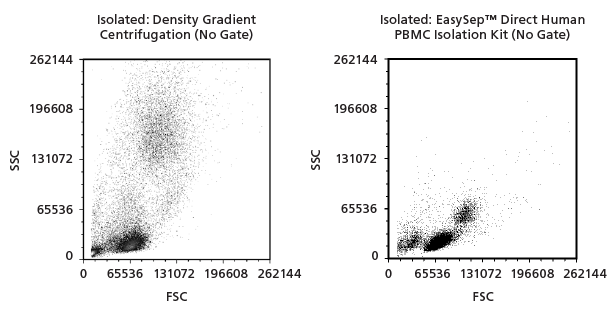
Figure 2. Representative Flow Cytometry Plots
Representative FSC vs. SSC flow cytometry plots of mononuclear cells isolated from whole blood samples using either density gradient centrifugation or EasySep™ Direct Human PBMC Isolation Kit.
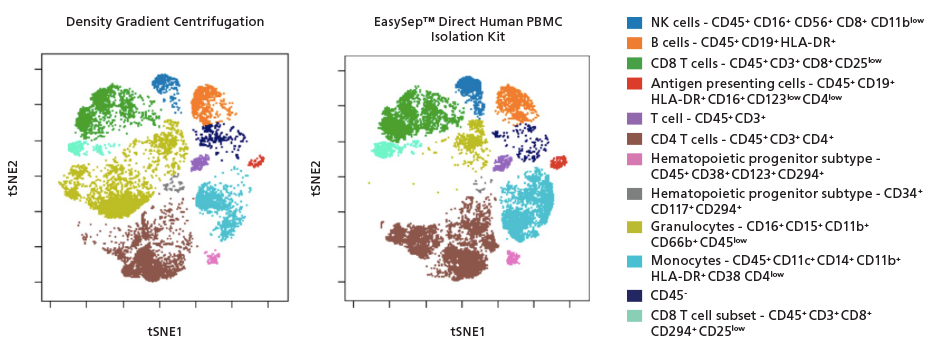
Figure 3. Representative t-SNE plots of Isolated PBMCs
Representative t-SNE plots of PBMCs stained with 19 markers and analyzed with mass cytometry (CyTOF). Cells are clustered and colored based on the combination of markers they express. Both density gradient centrifugation and EasySep™ Direct Human PBMC Isolation Kit resulted in comparable cell populations with the exception of the contaminating granulocyte population (CD16+CD15+CD11b+CD66b+ CD45low).
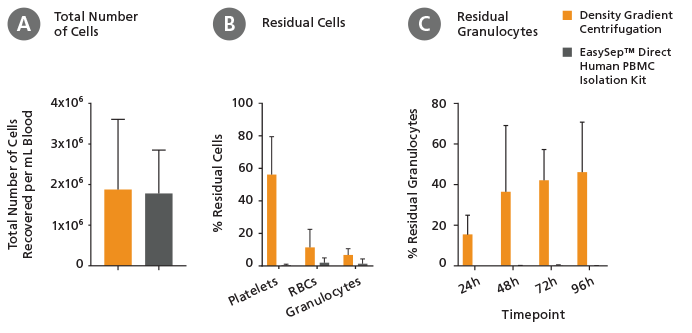
Figure 4. EasySep™ Direct Human PBMC Isolation Kit Results in Fewer Contaminating Cells Compared to Density Gradient Centrifugation
Mononuclear cells were isolated from whole blood samples using either density gradient centrifugation or EasySep™ Direct Human PBMC Isolation Kit. Cells were counted and analyzed by flow cytometry. (A) Both density gradient centrifugation and EasySep™ Direct Human PBMC Isolation Kit resulted in an equivalent total number of nucleated cells recovered from 24-hour blood samples (mean ± SD; n=14). (B) Using EasySep™ Direct Human PBMC Isolation Kit to obtain mononuclear cells from 24-hour old blood samples resulted in lower numbers of residual platelets (CD41+), red blood cells (Glycophorin A+/CD45-), and granulocytes (CD66b+) compared to density gradient centrifugation (mean ± SD; n=15). (C) Cell isolation from 24-hour, 48-hour, 72-hour and 96-hour old blood samples using EasySep™ Direct Human PBMC Isolation Kit resulted in lower numbers of residual granulocytes compared to cell isolation using density gradient centrifugation (mean ± SD; n=3).
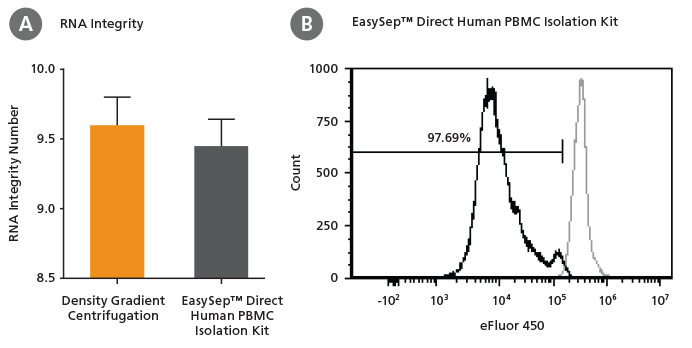
Figure 5. PBMCs Isolated with EasySep™ Direct Human PBMC Isolation Kit Proliferate and Maintain High RNA Integrity
Mononuclear cells were isolated from whole blood samples using either density gradient centrifugation or EasySep™ Direct Human PBMC Isolation Kit. (A) Isolated mononuclear cells were used for downstream RNA isolation. There was no significant difference in RNA integrity as measured with the Agilent RNA Bioanalyzer (mean ± SEM, n=3). (B) Isolated mononuclear cells were labeled with Proliferation Dye eFluor 450 and stimulated with ImmunoCult™ Human CD3/CD28 T Cell Activator and 0.5ng/ml IL-2. After 4 days in culture, cells were analyzed for proliferation by flow cytometry. Representative histogram showing dividing cells (eFluor 450low).
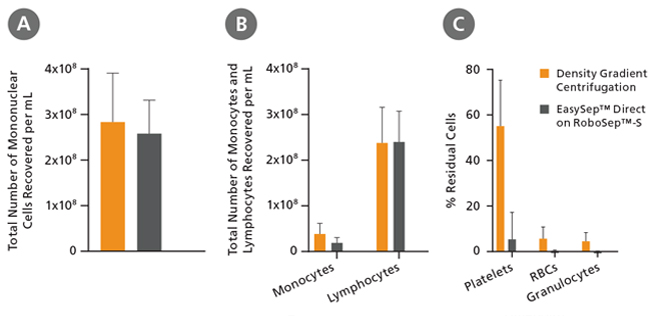
Figure 6. PBMC Isolation from a Full-Size Leukapheresis Pack Using the EasySep™ Direct Human PBMC Isolation Kit Automated with RoboSep™-S Results in Fewer Contaminating Cells Compared to Density Gradient Centrifugation
Mononuclear cells were isolated from single concentrated leukapheresis packs using either density gradient centrifugation with Lymphoprep™ density gradient medium (Density Gradient Centrifugation) or EasySep™ Direct Human PBMC Isolation Kit automated on the RoboSep™-S instrument (EasySep™ Direct on RoboSep™-S). Cells were counted and analyzed by flow cytometry. Compared to density gradient centrifugation, EasySep™ Direct Human PBMC Isolation Kit automated on the RoboSep™-S instrument resulted in (A) equivalent numbers of total mononuclear cells, (B) equivalent numbers of total monocytes and lymphocytes and (C) lower numbers of residual platelets (CD41+), red blood cells (Glycophorin A+ /CD45− ), and granulocytes (CD66b+ ) (mean ± SD n=6).

